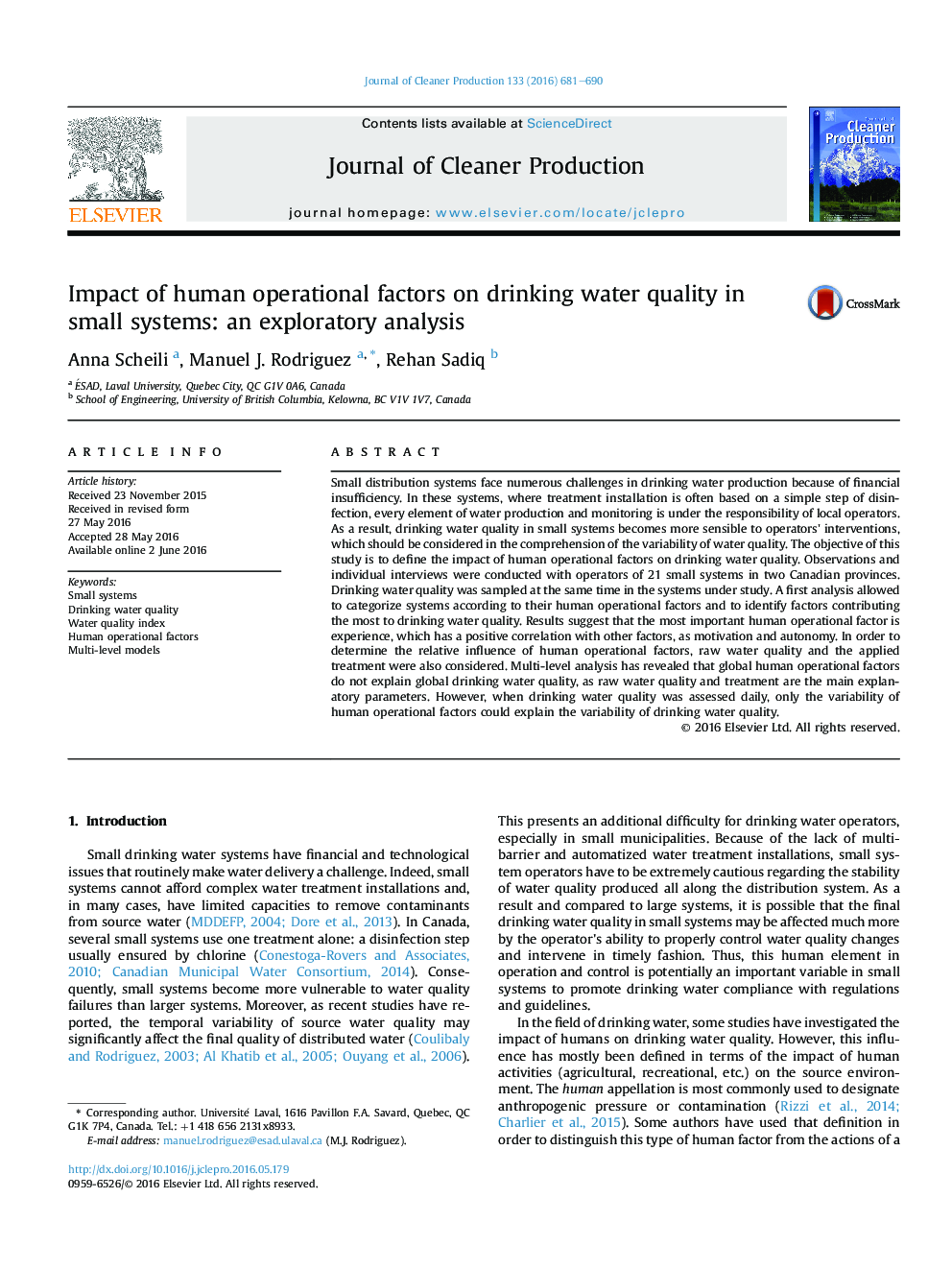| Article ID | Journal | Published Year | Pages | File Type |
|---|---|---|---|---|
| 8101792 | Journal of Cleaner Production | 2016 | 10 Pages |
Abstract
Small distribution systems face numerous challenges in drinking water production because of financial insufficiency. In these systems, where treatment installation is often based on a simple step of disinfection, every element of water production and monitoring is under the responsibility of local operators. As a result, drinking water quality in small systems becomes more sensible to operators' interventions, which should be considered in the comprehension of the variability of water quality. The objective of this study is to define the impact of human operational factors on drinking water quality. Observations and individual interviews were conducted with operators of 21 small systems in two Canadian provinces. Drinking water quality was sampled at the same time in the systems under study. A first analysis allowed to categorize systems according to their human operational factors and to identify factors contributing the most to drinking water quality. Results suggest that the most important human operational factor is experience, which has a positive correlation with other factors, as motivation and autonomy. In order to determine the relative influence of human operational factors, raw water quality and the applied treatment were also considered. Multi-level analysis has revealed that global human operational factors do not explain global drinking water quality, as raw water quality and treatment are the main explanatory parameters. However, when drinking water quality was assessed daily, only the variability of human operational factors could explain the variability of drinking water quality.
Related Topics
Physical Sciences and Engineering
Energy
Renewable Energy, Sustainability and the Environment
Authors
Anna Scheili, Manuel J. Rodriguez, Rehan Sadiq,
